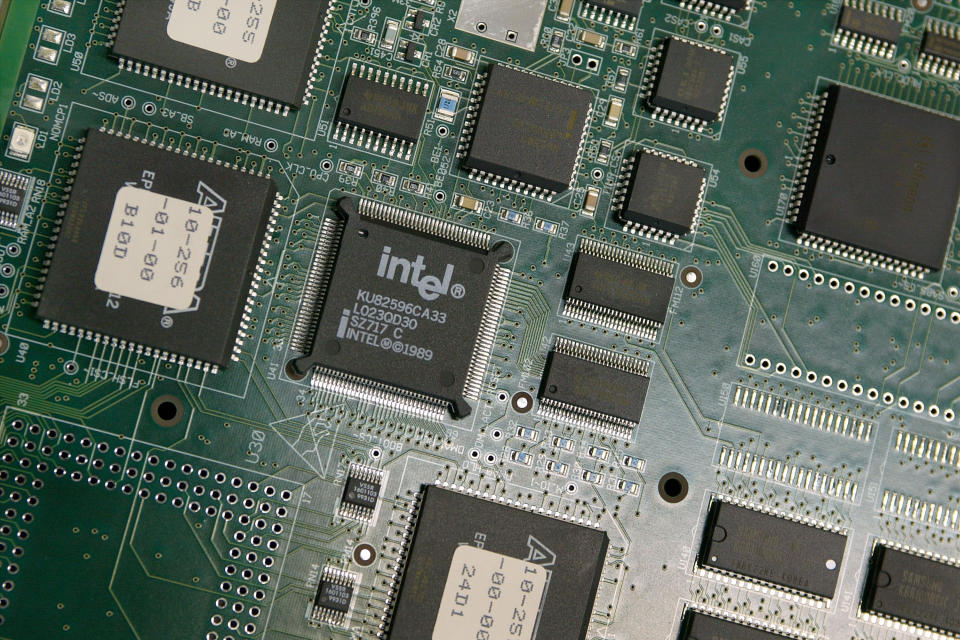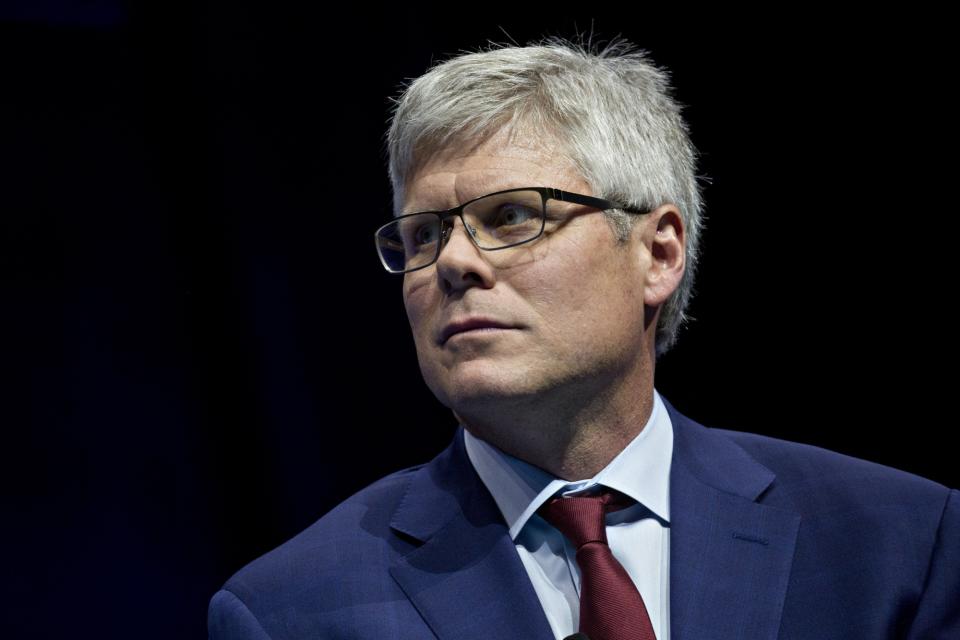In This Article:
(Bloomberg) -- Qualcomm Inc.’s lawyers saw a chance to score some points in a government antitrust case against the chipmaker by making an example of rival Intel Corp. as a company accused of abusing its dominance of an industry. They were wrong.
After an interrogation of Intel’s chief strategy officer largely backfired this week, a Qualcomm attorney on Friday declined a judge’s invitation to bring Aicha Evans back to the witness stand as a non-jury trial brought by the Federal Trade Commission moved into its fourth day of testimony.
“Not from us, your honor,” Qualcomm lawyer Antony Ryan told U.S. District Judge Lucy Koh, prompting a cheer from Evans, which provoked widespread laughter in the San Jose, California, courtroom after one of the liveliest showdowns so far in the case. It also ended something of an ordeal for him.
Testimony later Friday from Qualcomm Chief Executive Officer Steve Mollenkopf was decidedly more stolid, with a reference to shipment practices amid stalled royalty payments and a cross examination about the ethos of the San Diego-based company. No fireworks, cheers or laughter ensued.
Evans, who formerly ran Intel’s mobile phone chip unit, repeatedly turned Ryan’s questions into opportunities to restate her company’s opinion that Qualcomm unfairly used technology licensing and its leadership in smartphone components to lock out competition.
Qualcomm Faces FTC Trial Threatening Smartphone Dominance
Ryan frequently sought to corner Evans by citing piecemeal excerpts from her emails and pretrial testimony, a common tactic in trials to save time. Evans had none of it, asserting her right to read documents aloud in their entirety while insisting context was crucial. When Ryan tried to interrupt her, she ignored him and read on.
Evans was born in Senegal, putting her in a very unusual category in the chip industry: a black female executive. Her mission at Intel was to gain market share in mobile phones to try to match the company’s dominant hold of the personal computer processor industry.
“Mr. Ryan, Mr. Ryan, you’re going very fast. Easy,” she told the attorney at one point. Earlier she’d said: “I’m a French speaker, numbers are hard. I’d ask you to please slow down."
Intel, the world’s second-largest chipmaker, holds about a 90 percent share in the lucrative market for computer server chips. In personal computer processors, it rakes in more than 80 percent of revenue. Its only remaining competitor, Advanced Micro Devices Inc., once accused Intel in a lawsuit of using its control of that market to force PC makers into remaining exclusive users of its products. The two sides settled the case with Intel paying AMD more than $1 billion in 2009.


